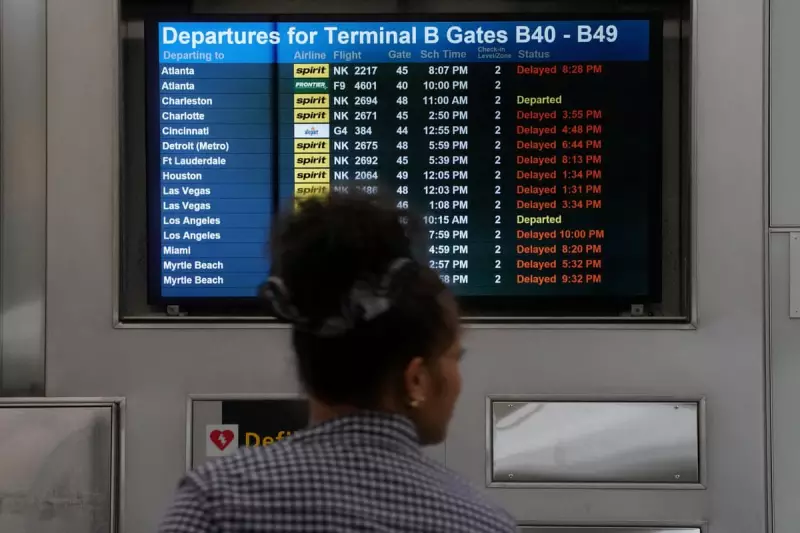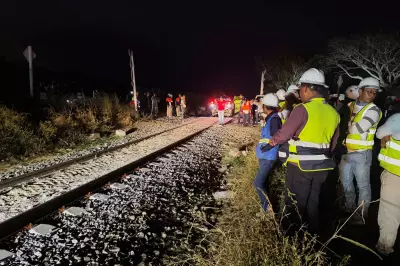
US Aviation Recovery Accelerates After Shutdown Resolution
The United States aviation sector is experiencing a swift recovery following the recent federal government shutdown, with experts confirming that Thanksgiving holiday travel should proceed without significant disruption. This positive development comes as air traffic controllers rapidly return to their positions after receiving assurances about back pay and additional bonuses.
Controller Return and Payment Promises
According to the Department of Transportation, the prompt return of air traffic controllers has been crucial to stabilising flight operations. During the 43-day shutdown that began on 1 October, controllers were deemed essential workers but required to work without pay, leading many to call in sick, resign, or seek secondary employment.
Transportation Secretary Sean Duffy confirmed that controllers would receive 70% of their back pay within 24 to 48 hours of the shutdown ending, with the remaining balance following a week later. In a further incentive, former President Donald Trump announced that controllers who continued working during the shutdown would receive a $10,000 bonus.
The positive impact was almost immediate. Mike Arnot, spokesperson for aviation analytics company Cirium, stated: "Already we are seeing less flight cancellations and delays. That's a testament to the controllers, right? Now that the controllers are going to get their back pay, finally, it probably will relatively quickly re-establish stability in the US airline industry."
Operational Improvements and Thanksgiving Outlook
Operational data demonstrates significant improvement since the government reopened. On Wednesday, even before the official shutdown resolution, only four staffing triggers were recorded - down dramatically from 81 on 8 November. Staffing triggers indicate delays caused by understaffed air traffic facilities.
Cancellation rates have shown consistent improvement, with only 3.5% of US flights cancelled on Thursday, marking the fourth consecutive day of declining disruption rates. Additionally, 94% of flights departed within 15 minutes of their scheduled times, compared to just 75% during the previous week.
Henry Harteveldt, airline industry analyst at Atmosphere Research Group, projected that if staffing levels normalise over the weekend, the Federal Aviation Administration could permit airlines to restore regular flight schedules as early as next week.
Ongoing Challenges and Systemic Issues
Despite the rapid recovery, underlying challenges persist in the US aviation system. The country was already experiencing an air traffic controller shortage before the shutdown began, with only 10,800 controllers available - approximately 3,800 fewer than the FAA's target level.
Aviation consultant Kit Darby emphasised the long-term nature of this problem, stating: "It's going to take two or three years to get enough air traffic controllers to approach the full number."
Pilot availability also remains a concern. Dennis Tajer, spokesperson for the Allied Pilots Association representing American Airlines pilots, noted that during the shutdown, many pilots reached maximum working hours due to delays, potentially creating shortages if weather disruptions occur in coming weeks.
The Transportation Security Administration faced similar challenges, with 50,000 TSA staff working without pay during the shutdown. Homeland Security Secretary Kristi Noem announced that TSA officers who continued working would also receive $10,000 bonuses, though specific criteria for eligibility remain unclear.
Johnny J Jones, secretary-treasurer of the American Federation of Government Employees' TSA Council 100, expressed concern about the bonus distribution, suggesting that "it's better to give everybody a little something because they all suffered and they all endured hard times during the last 43 days."
As the aviation system continues its recovery, industry observers remain cautiously optimistic. Mike Arnot of Cirium summarised the situation: "We believe the impact of the shutdown will be muted by Monday." For millions of Americans planning Thanksgiving travel, this recovery comes as welcome news indeed.





